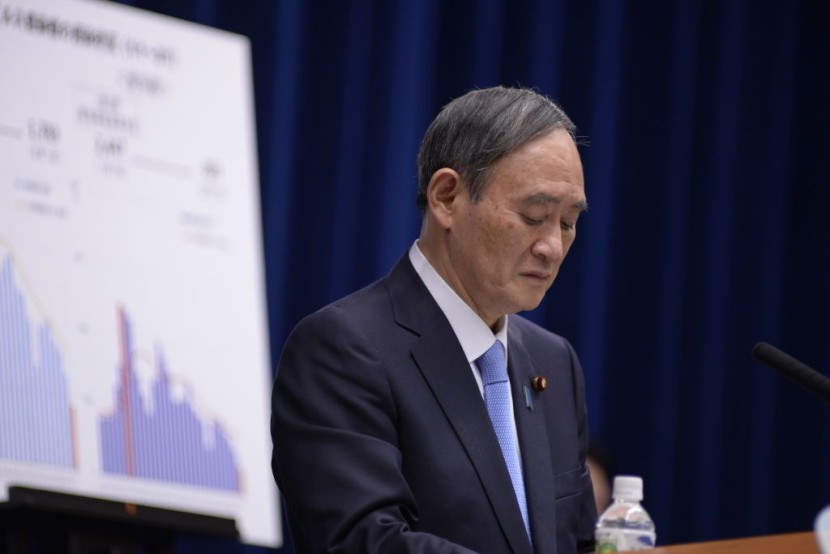
Aside from the uncertainty of hosting the upcoming Tokyo Olympics, doubts continuously grow on Prime Minister Yoshihide Suga's administration over the rolling out of vaccines. This prompted him to declare Japan a state of Emergency concerning COVID-19 through March 7, on Tuesday.
The prime minister's announcement did not only extended the imposed coronavirus state of emergency in Tokyo but also to nine other locations in the country.
State of Emergency Extended for at least a Month
The Japanese prime minister also shared that he will expedite the plans regarding vaccination, as he will start inoculating the first group of medical workers in the middle of February, instead of the earlier proposal of doing it at the end of the month.
Based on the guidelines mentioned under the state of emergency, the Japanese government has issued non-binding requests for individuals to avoid crowded places and have their meals in groups.
While for bars and restaurants, aside from the safety protocols imposed, they were also limited to closing at 8 p.m.
Based on some experts, despite the decline in new cases in Tokyo and in the whole nation from the start of 2021, there is still a need to continue implementing the preventive measures as the medical facilities remain flooded with severe cases.
As of the latest tally, Japan has recorded 400,000 COVID-19 cases, wherein 5,800 of them resulted in death, Reuters reported.
Moreover, prime minister Suga also asked for the cooperation of his countrymen in enduring the safety protocols a little bit longer.
He also explained that it is the only way to make sure that the infections will continuously decline its numbers.
According to the Associated Press, the initial Japan State of Emergency will end on Sunday in Tochigi prefecture, north of Tokyo, as the local situation in the area has improved. At the same time, it will continue in places like Tokyo, and its neighboring prefectures, which include China, Saitama, and Kanagawa, along with Hyogo, Kyoto, Osaka, and Fukuoka in the western part and Gifu and Aichi in the central area of the country.
Japan's health minister Norihisa Tamura stated earlier Tuesday that around 80% of the individuals who tested positive with coronavirus in Japan are in the 10 prefectures placed under the Japan State of Emergency.
He also added that these highlighted areas need to be watched closely.
Aside from the early closing time imposed on the restaurants and bars, employers were also asked to arrange additional employees to be shifted on work from home options. The government official also stated that there would be an expansion regarding the testings conducted for coronavirus.
He also compared the current state of emergency to their first experience last year wherein he shared that during the first emergency of Japan in April and May of last year, theaters, gyms, schools, and shops remained open and continued their operations. Still, many stores voluntarily closed their businesses as they fear acquiring the virus, NPR reported.
He also added that the measures are Japanese style that focuses on narrow targets such as dining and the service hours, aside from the basics wearing masks, avoiding crowds, and handwashing.








